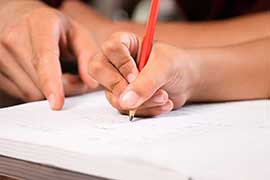Emotional wellbeing tips for the classroom videos
These seven films from Nip in the Bud are on average 4 minutes long. They provide easy-to-use tips and guidance for teachers who have vulnerable children in their classroom who might be showing signs of a mental health condition or already have a formal diagnosis.


